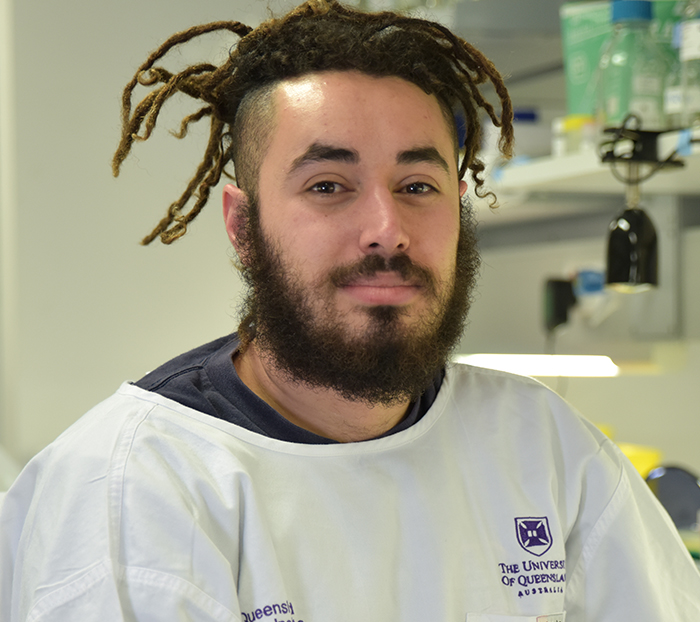Queensland Brain Institute researcher Adam Briner is heading ‘stateside’ after successfully applying for a 2020 Fulbright scholarship.

Mr Briner, who works in the lab of Professor Jürgen Götz, will use the scholarship to study the role of tau protein in neurodegenerative diseases like Alzheimer’s under the guidance of Professor Aaron Gitler at Stanford University.
“I hope to identify new mechanisms through which tau mediates, and ultimately dysregulates, fundamental pathways in neuronal physiology to identify novel therapeutic targets,” Mr Briner said.
“I’m excited by a future where I’m among the first generation of clinician-scientists able to understand, prescribe and deliver this type of targeted therapy.”
Mr Briner was joined by senior cancer researcher Associate Professor Kristen Radford and Ms Chloe Yap as The University of Queensland’s other successful candidates.
Dr Radford has spent more than a decade developing vaccines to treat a variety of cancer types, including one she is currently working on to target acute myeloid leukaemia, melanoma, prostate and ovarian cancer.
“We have shown in novel preclinical human models that our new vaccine is superior to current vaccines that already show promise in clinical trials,” said Dr Radford, who will work at the Tisch Cancer Institute in New York.
“They are world leaders in cancer vaccine clinical trials.
“My Fulbright scholarship will allow me to acquire new techniques and expertise, and develop new international partnerships to help translate our vaccine to the clinic.”
Ms Yap will undertake “big data” analysis on genetic studies of the human brain in relation to autism and will work on a proposed clinical trial under the guidance of Dr Michael Gandal at the University of California, Los Angeles.
“We rely on observation and interview to arrive at a diagnosis with autism and other psychiatric conditions,” Ms Yap said.
“The lack of biomarkers reflects our limited understanding of the biology.
“Perhaps looking at physical conditions in autism that are more obviously biological will be an inroad. Why are they so common? What do they say about the underlying biology of autism? The answers may help to improve diagnosis and tailor treatment.”
Ms Yap will begin studying at UCLA in 2021 after completing the second year of her PhD at UQ’s Mater Research Institute and Institute for Molecular Bioscience.
The Fulbright Program in Australia provides funding each year for the nation’s best and brightest to study at world-leading research institutes and universities in the United States.



